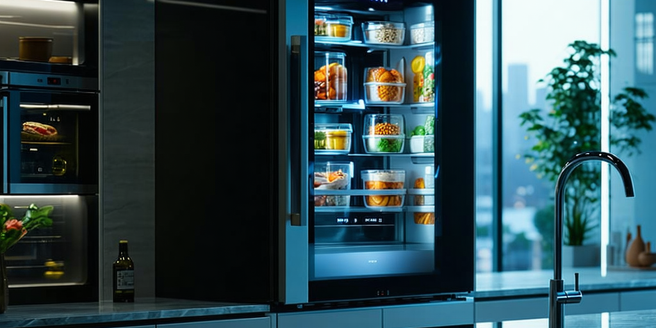Automated Home Appliances

The Rise of Smart Home Technology
Smart home technology has transformed how we interact with and control our living spaces. Thanks to advances in connectivity and artificial intelligence, devices now offer seamless integration with our daily routines, enhancing convenience and efficiency. From voice-activated assistants to app-controlled lighting, the landscape of home automation is expanding rapidly. This trend is driven by consumer demand for more personalized, secure, and energy-efficient solutions. Connectivity improvements through Wi-Fi and Bluetooth allow different devices to communicate, creating an interconnected home environment. Companies are consistently innovating, aiming to make smart homes more accessible and user-friendly. The rapid adaptation of IoT-enabled devices signifies a pivotal shift towards a future where homes are no longer passive spaces but interactive environments responding to our needs.
Benefits of Automated Appliances
Automated appliances bring numerous benefits to modern households, elevating convenience to a whole new level. These devices are designed to reduce the time and effort spent on routine tasks, allowing homeowners to focus on more important matters. For instance, automated vacuum cleaners keep floors clean with minimal human intervention, while smart refrigerators manage grocery lists and expiration dates. Energy management systems optimize power consumption, leading to reduced utility bills and a smaller carbon footprint. Moreover, automated appliances enhance safety with features like smoke detectors that send alerts directly to your phone. Personalization is another key aspect, as these devices adapt to individual preferences over time, offering a tailored user experience. As technology continues to advance, the functionality of automated appliances is expected to grow, bringing even more benefits.
Popular Automated Devices for Every Room
In today’s homes, you can find smart devices catering to every room, each offering its unique set of functionalities. In the kitchen, automated coffee makers that sync with your morning alarm ensure a fresh brew awaits you. Living rooms benefit from smart thermostats and lighting systems that adjust according to your preferences and routines. Bedrooms are seeing an influx of smart mattresses and sleep trackers, aiming to improve sleep quality. Bathrooms aren’t left behind, with intelligent showers and smart mirrors providing a futuristic experience. Furthermore, home security systems are getting smarter, with cameras and alarms that can be controlled remotely. Garages can also benefit from automation through smart door systems. These devices not only enhance convenience but also add a layer of sophistication to your home environment.
How to Integrate Automation in Your Home
Integrating automation into your home can seem daunting at first, but with careful planning, it can be a seamless process. Start by identifying your priorities—whether it’s enhancing security, increasing energy efficiency, or improving convenience. Once you have a clear goal, research and select devices that align with your needs. Consider investing in a smart hub that acts as the central command for all your devices, facilitating better communication between them. Ensure the devices you choose are compatible with each other and offer integration with popular voice assistants like Alexa or Google Assistant. Plan the installation process carefully, and don’t hesitate to seek professional help if needed. Always focus on scalability, allowing for future upgrades and additions. With the right strategy, home automation can transform your living experience.
The Future of Home Automation
The future of home automation holds promising possibilities as technology continues to evolve. As artificial intelligence becomes more sophisticated, smart home systems will likely offer even more personalization and predictive capabilities, learning from our behaviors and preferences to better anticipate our needs. Energy-efficient solutions will be at the forefront, with devices designed to minimize waste and enhance sustainability. Wireless and voice-control technologies will advance, offering more seamless integration and user experiences. Privacy and security, crucial aspects of automation, will see significant improvements as companies develop more robust solutions to protect users. As 5G technology becomes more widespread, the connectivity and speed of smart devices will greatly enhance, enabling more complex functionalities and innovations. Ultimately, the future of home automation will unlock unprecedented levels of convenience, comfort, and efficiency.